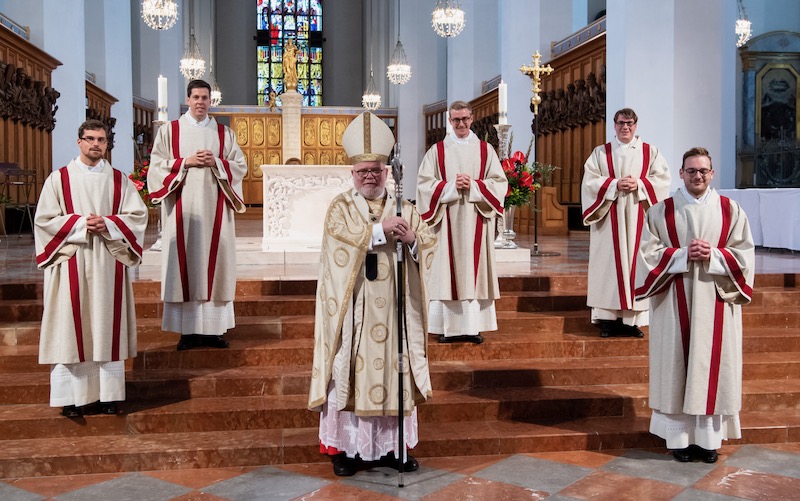Cardinal Reinhard Marx has reiterated how urgent it is to appoint more women leaders in the Church.
“Changes in this field are really urgent and must be pressed ahead with,” he warned. “We talk a lot about the Church’s new social form and on no other point is this reflected more clearly”, Marx said last week.
He was commenting on the publication to a wider audience of an address he held at the Council of Cardinal Advisors in Rome in December 2019. The secretariat of the German bishops’ conference published it as part of a series it is producing on conference presidents.
In his 2019 address in Rome, Marx recalled that in the 2018 study of clerical sexual abuse commissioned by the German bishops’ conference, which showed that 3,677 children and adolescents had been abused by 1,670 priests between 1946 and 2014, clerical structures and a clerical administration had been named as a factor in the massive abuse in the Church and its cover-up.
“Women in leading positions in the Church – and this is precisely not a matter of women’s ordination – contribute towards breaking up closed male clerical circles and associations in the Church…For the sake of our credibility as a Church and our credibility as bishops, we must do everything we possibly can to get women to take up leading positions in the Church,” Marx wrote. “The developments and experiences of recent years in the Church in Germany – and probably worldwide – show us that for young people, both men and women, serving the Church has become less and less attractive. They simply do not believe that the Church will treat women as equals or really allow them to participate”.
Positions that were open to laymen in the Church must also be open to lay women, the cardinal said. In order to increase the percentage of women in leading positions in the Church, determination and clear commitment on the part of the bishops and other leading clerics was needed so that correspondingly qualified women could be placed in leading positions, even if this meant disappointing male candidates – whether they were priests or laymen, Marx explained.
In personnel development, the term “unconscious bias” (Marx uses the English words in inverted commas) is used to describe the unconscious preferment of candidates with whom one is more familiar than with others because, for example, they are of one’s own gender, he recalled.
The second important point was that women in leading positions in the Church needed role models to attract them to church service. “Particularly as far as public relations and press work are concerned, we have not yet succeeded in making women more visible. We must appoint press spokeswomen, for example, to make it clear that women, too, give the Church a face and can speak for it”.
Conference president Bishop George Bätzing has on several occasions recently underlined that for him giving women a greater role is the most important issue facing the Church today.
Bishop Hans-Josef Becker of Paderborn is already advertising positions for women. His diocese offers part-time jobs, possibilities of working from home and the opportunity of sharing a leading position with dual authority – “in tandem”, as he puts it. He aims to improve on the 30 per cent of women in important positions that the bishops’ conference has made its aim.



 Loading ...
Loading ...